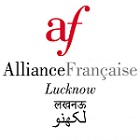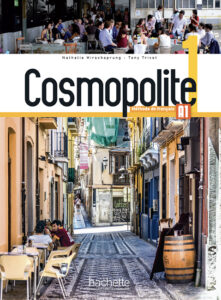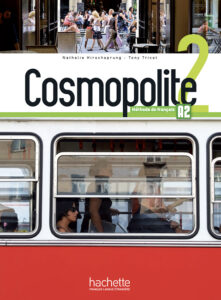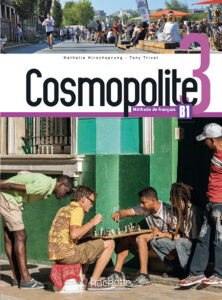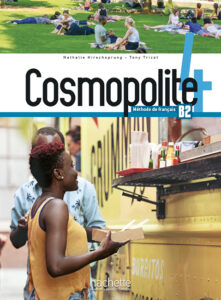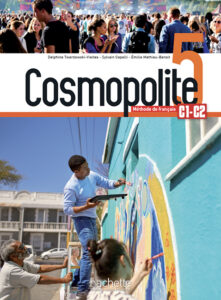Learning a language
…is not the same thing than learning some content (like in history or mathematics), it requires to build a competence based on neural connections related to four main skills : Understanding, Reading, Writing and Speaking.
In Alliance française we believe in building a Linguistic Competence through an action-based and science-backed methodology. That means that you have to be an actor of your learning process and not only do a few exercises and answer a question from time to time. You are here to learn to speak French, so Speak as much as possible, make as many entire sentences as possible, and do as many mistakes as possibles, this is what Classrooms are for !
A Specific methodology
In all Alliance françaises in India, we base our teaching on a set of objectives to bring the learners to the competencies required by each level. To reach these targets, we use a set of textbooks named Cosmopolite (Hachette edition), which teachers follow during the entire learning experience.
PLEASE KINDLY NOTE: It is the freedom of the teacher to use, or not, certain units of the textbook. The objective is not to cover the entire textbook but to reach the objectives described below. Following this statement and the dynamic of your class, you might cover more or less of the textbook, without any consequences on the final objectives of the curriculum.
A progressive curriculum
BASIC USER
A1 – Beginner | COSMOPOLITE 1 |
• Can understand and use familiar everyday expressions and very basic phrases aimed at the satisfaction of needs of a concrete type.
• Can introduce him/herself and others and can ask and answer questions about personal details such as where he/she lives, people he/she knows and things he/she has.
• Can interact in a simple way provided the other person talks slowly and clearly and is prepared to help.
A2 – Intermediate | COSMOPOLITE 2 |
• Can understand sentences and frequently used expressions related to areas of most immediate relevance (e.g. very basic personal and family information, shopping, local geography, employment).
• Can communicate in simple and routine tasks requiring a simple and direct exchange of information on familiar and routine matters.
• Can describe in simple terms aspects of his/her background, immediate environment, and matters in areas of immediate need.
INDEPENDENT USER
B1 – Advanced| COSMOPOLITE 3 |
• Can understand the main points of clear standard input on familiar matters regularly encountered in work, school, leisure, etc.
• Can deal with most situations likely to arise whilst traveling in an area where the language is spoken.
• Can produce simple connected text on topics that are familiar or of personal interest.
• Can describe experiences and events, dreams, hopes, and ambitions and briefly give reasons and explanations for opinions and plans.
B2 – Autonomous | COSMOPOLITE 4 |
• Can understand the main ideas of complex text on both concrete and abstract topics, including technical discussions in his/her field of specialization.
• Can interact with a degree of fluency and spontaneity that makes regular interaction with native speakers quite possible without strain for either party.
• Can produce clear, detailed text on a wide range of subjects and explain a viewpoint on a topical issue giving the advantages and disadvantages of various options.
PROFICIENT USER C1 – Fluent| COSMOPOLITE 5 |
• Can understand a wide range of demanding, longer texts, and recognize implicit meaning.
• Can express him/herself fluently and spontaneously without much obvious searching for expressions.
• Can use language flexibly and effectively for social, academic and professional purposes.
Can produce clear, well-structured, detailed text on complex subjects, showing controlled use of organizational patterns, connectors, and cohesive devices.
